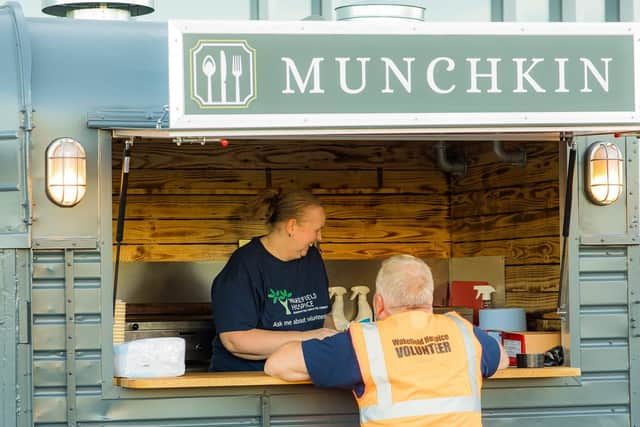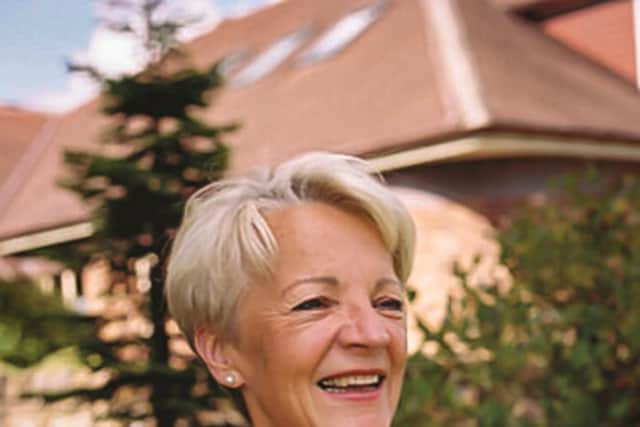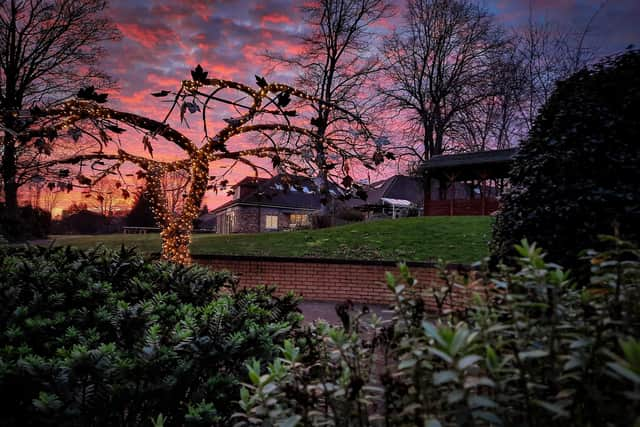Wakefield Hospice's vital 'cultural shift' as fundraising hit by cost-of-living crisis
In common with many other hospices, Wakefield Hospice only receives around one-quarter of the funding it needs to meet its £4m annual costs from the Government, with the rest coming through fundraising activities.
But that model is coming under increasing pressure as inflationary factors have upped their outgoings in areas such as energy bills and staffing costs while cost-of-living challenges have hit donations.
Advertisement
Hide AdAdvertisement
Hide AdThe Hospice’s ongoing Resilience Appeal, which is due to end in April, had hoped to raise £250,000 but has currently raised less than £60,000. Now the hospice is trying a different approach as it seeks to ensure its long-term sustainability.


An external catering business has been set up alongside a new house clearance service, as well as running external bereavement training programmes and a daily respite service for people with dementia. The hospice has even launched a restaurant called Books & Bistro in the Walton Community Library.
Chief executive Tina Turner tells The Yorkshire Post that the hospice will always be hugely grateful for traditional donations and fundraising efforts but recognise that cost-of-living pressures are having an impact on what people can afford to give.
"If you can’t afford to put food on the table and you are frightened of your electric bill, it is much harder to give us that regular £10 a month.
Advertisement
Hide AdAdvertisement
Hide Ad"In common with most other hospices we run a reserves policy that means we strive to keep cash in the bank for a rainy day. There is a fine balance here. Failing to meet our target this year, as we almost certainly will, puts pressure on our reserves and our long-term financial plan.


"But it is not the end of the world. We are a confident organisation and working really hard to secure sustainability for the future."
She says the new “earn as well as ask” approach to income generation is not a decision that has been taken lightly.
"Talking to dyed in the wool hospice staff about charging money for things is very difficult. It is in our nature to do things free of charge.
Advertisement
Hide AdAdvertisement
Hide Ad"But my argument has been if we want to protect those core services and keep them free of charge for everybody, then we are going to have earn our money some way. That has been a big cultural shift. We have one or two things up and running and have more planned.”


Such financial calculations are a key part of a chief executive’s job but Turner says the hard work in this area and the challenges going on behind the scenes are kept entirely away from patients and their families. Indeed, it is ensuring that care remains at the highest possible standard which is motivating the efforts.
She says: "Patient experience in terms of comfort and quality of service is sacrosanct.
"I want people to feel like we all have time for them. I want people to feel like whatever distressing symptoms they have been experiencing there is a sense of calm and confidence. That is integral to what we offer. We have a maxim that ‘What’s important to us is what matters to you, not what is the matter with you’. We genuinely feel we can accommodate whatever are your wishes.
Advertisement
Hide AdAdvertisement
Hide Ad"Another big thing is providing a safe and often a facilitated opportunity for people to talk. What we find is family members with the best intentions and all the love in the world are inexperienced and anxious about having a conversation and yet it is very often what the dying person is desperate to do. They want to say some of the things they have been thinking about, say what is important to them. Once you facilitate that, you are not just guaranteeing a person dying with a mind at peace but the family member living on with warm memories of having said and shared some of those things.”
Having started her own career in residential care 40 years ago, Turner says her career has taught her a great deal about life and death.
"It is a massive privilege to be part of someone’s last days, weeks, months and minutes. You don’t get any second chances.
"Most people want to have people they love with them, they want to be dying in a place that they choose that tends not to be possible and they want to be pain-free.
Advertisement
Hide AdAdvertisement
Hide Ad"For most people death is not painful, not traumatic, not sudden or desperate and not scary. For most people, they spend more time sleeping than they do awake over the course of time and they become more difficult to wake up until you can’t wake them up and they are at some level of lower consciousness and then they die. Everybody is anxious about a terrible death you see on film that are noisy and frightening. That is not how most people die.”
She says receiving a thank you from bereaved family members for the end-of-life care that has been provided means a huge amount.
"Still after 40-odd years there are stories about our patients and our families that move me to tears. I say to staff never be sorry about crying or in grief over somebody’s death. When the time comes when you are not moved anymore is it is time to pack in and do another job.”
While Turner says in an ideal world, the specialist palliative and end of life care hospices provide would be fully state-funded she is still very optimistic for the organisation’s future.
"We are absolutely determined that in the future we want to be a part of more people’s journey to end of life.”